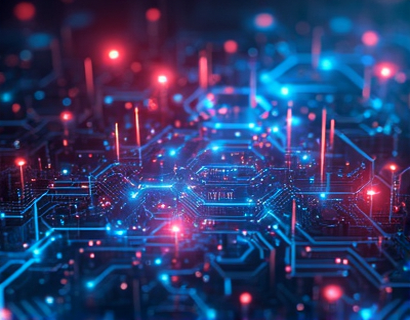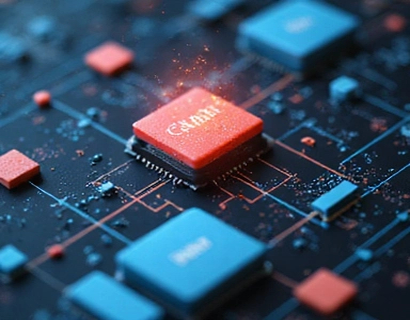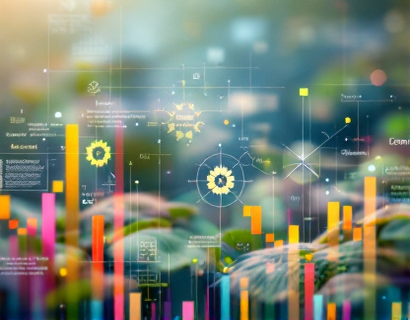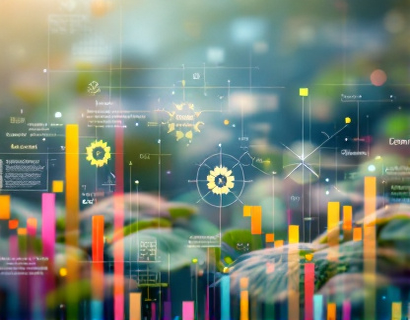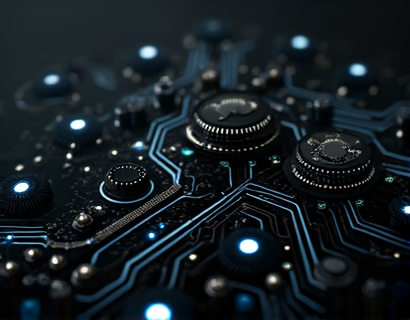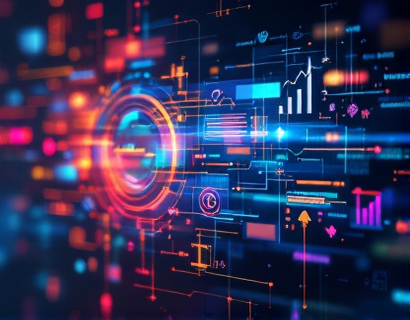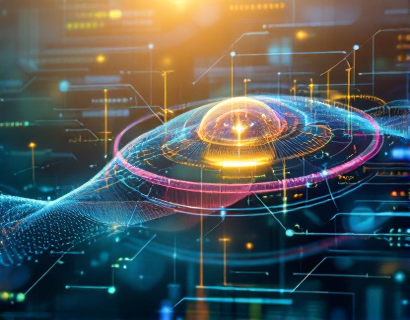Crypto and AI: Transforming Industries with Advanced Tech for Enhanced Digital Experiences
The intersection of cryptocurrency and artificial intelligence (AI) represents one of the most exciting frontiers in technology today. This fusion of two revolutionary fields is not only reshaping the way we interact with digital systems but also opening up new possibilities for industries across the globe. As tech enthusiasts and early adopters, understanding this synergy is crucial for anyone looking to stay ahead in the rapidly evolving landscape of digital innovation.
The integration of AI into the crypto space has given rise to a new generation of applications and services that leverage the strengths of both technologies. Cryptocurrency, with its decentralized and secure nature, provides an ideal environment for AI algorithms to operate without the constraints of traditional financial systems. Conversely, AI's ability to analyze vast amounts of data and make intelligent decisions enhances the functionality and security of blockchain-based platforms.
Enhancing Security with AI
One of the primary benefits of combining AI with cryptocurrency is the significant improvement in security measures. Traditional cybersecurity methods often struggle to keep up with the sophistication of modern cyber threats. AI, however, can detect and respond to anomalies in real-time, providing a more robust defense against potential attacks. For instance, machine learning algorithms can analyze transaction patterns to identify suspicious activities, thereby reducing the risk of fraud and enhancing the overall security of blockchain networks.
Smart contracts, a cornerstone of blockchain technology, can also be fortified with AI. By incorporating AI-driven analysis, smart contracts can automatically adapt to changing conditions and execute more complex logic, ensuring that agreements are not only secure but also flexible and responsive to real-world scenarios. This synergy between AI and blockchain technology is paving the way for more secure and efficient digital transactions.
Optimizing Performance through AI
AI is not only enhancing security but also optimizing the performance of cryptocurrency systems. Blockchain networks, particularly those using proof-of-work consensus mechanisms, can be energy-intensive and slow. AI algorithms can optimize these processes by predicting network behavior, managing resource allocation, and even designing more efficient consensus mechanisms. For example, AI can help in the development of proof-of-stake models that are not only more energy-efficient but also faster and more scalable.
Moreover, AI can improve the user experience on blockchain platforms by personalizing services and streamlining operations. By analyzing user behavior and preferences, AI can tailor recommendations and services, making the interaction with crypto assets more intuitive and user-friendly. This level of personalization is particularly valuable in a space where complexity can often be a barrier to adoption.
Innovative Applications in Various Industries
The impact of AI and cryptocurrency extends far beyond the realm of finance. Industries such as healthcare, supply chain management, and entertainment are witnessing transformative changes thanks to this technological fusion. In healthcare, AI-driven analytics can process vast amounts of medical data to identify patterns and predict outcomes, while cryptocurrency can facilitate secure and private data sharing among healthcare providers. This combination can lead to more accurate diagnoses and personalized treatment plans.
In supply chain management, blockchain technology ensures transparency and traceability, while AI can optimize logistics and inventory management. By analyzing real-time data, AI can predict demand, optimize routes, and reduce waste, leading to more efficient and sustainable supply chains. Cryptocurrency can further enhance these processes by providing a seamless and secure method for transactions, eliminating the need for intermediaries and reducing costs.
The entertainment industry is another area where AI and cryptocurrency are making significant strides. AI can create personalized content recommendations, enhancing the viewer experience on streaming platforms. Cryptocurrency can be used to reward creators and incentivize engagement, creating a more direct and fair relationship between content creators and their audiences. Token-based models can also facilitate new business models, such as subscription services and virtual merchandise, opening up new revenue streams for content producers.
Enhancing Digital Experiences through AI-Driven Crypto Solutions
The synergy between AI and cryptocurrency is not just about improving existing systems but also about creating entirely new digital experiences. One such example is the development of decentralized applications (dApps) that leverage AI to offer advanced functionalities. These dApps can range from decentralized finance (DeFi) platforms that provide innovative financial services to social media platforms that prioritize user privacy and data ownership.
AI-driven chatbots and virtual assistants are becoming increasingly common in the crypto space, providing users with real-time support and guidance. These AI-powered tools can handle a wide range of tasks, from answering frequently asked questions to assisting with complex transactions. By integrating natural language processing (NLP) and machine learning, these chatbots can understand and respond to user queries in a more human-like manner, enhancing the overall user experience.
Another exciting development is the use of AI in cryptocurrency trading and investment. AI algorithms can analyze market data, identify trends, and make predictions, helping investors make more informed decisions. Robo-advisors powered by AI can manage crypto portfolios, adjusting asset allocations based on market conditions and individual risk profiles. This level of automation and intelligence is transforming the way people interact with cryptocurrencies, making the process more accessible and less intimidating for newcomers.
Challenges and Considerations
While the potential of AI and cryptocurrency is immense, there are several challenges that need to be addressed to fully realize this potential. One of the primary concerns is regulatory uncertainty. The decentralized nature of cryptocurrencies and the complex algorithms used in AI systems can make it difficult for regulators to create clear and effective guidelines. However, as the industry matures, we can expect more structured frameworks that balance innovation with consumer protection.
Another challenge is the technical complexity involved in integrating AI with blockchain technology. Developing robust and scalable solutions requires expertise in both domains, which can be a barrier for many organizations. Collaboration between tech companies, research institutions, and industry experts will be crucial in overcoming these technical hurdles.
Privacy is also a significant concern. While AI can enhance security, it can also raise questions about data privacy and the ethical use of personal information. Ensuring that AI-driven crypto solutions respect user privacy and comply with data protection regulations is essential for building trust and widespread adoption.
Future Prospects
Looking ahead, the future of AI and cryptocurrency is bright, with numerous opportunities for growth and innovation. As AI algorithms become more advanced, we can expect even more sophisticated applications in the crypto space. For instance, the development of quantum-resistant cryptography, powered by AI, could ensure the long-term security of blockchain networks in the face of quantum computing threats.
The rise of Web 3.0, a decentralized internet powered by blockchain and AI, represents the next frontier in digital technology. In this ecosystem, users will have greater control over their data and online identities, and AI will play a pivotal role in creating seamless and secure interactions. The integration of augmented reality (AR) and virtual reality (VR) with AI and cryptocurrency could also lead to immersive digital experiences that redefine how we work, play, and connect with each other.
In conclusion, the intersection of AI and cryptocurrency is driving a technological revolution that is transforming industries and enhancing digital experiences. By leveraging the strengths of both fields, we can create more secure, efficient, and innovative solutions that benefit society as a whole. As tech enthusiasts and early adopters, embracing this synergy will not only keep us at the forefront of innovation but also shape the future of technology in profound ways.





